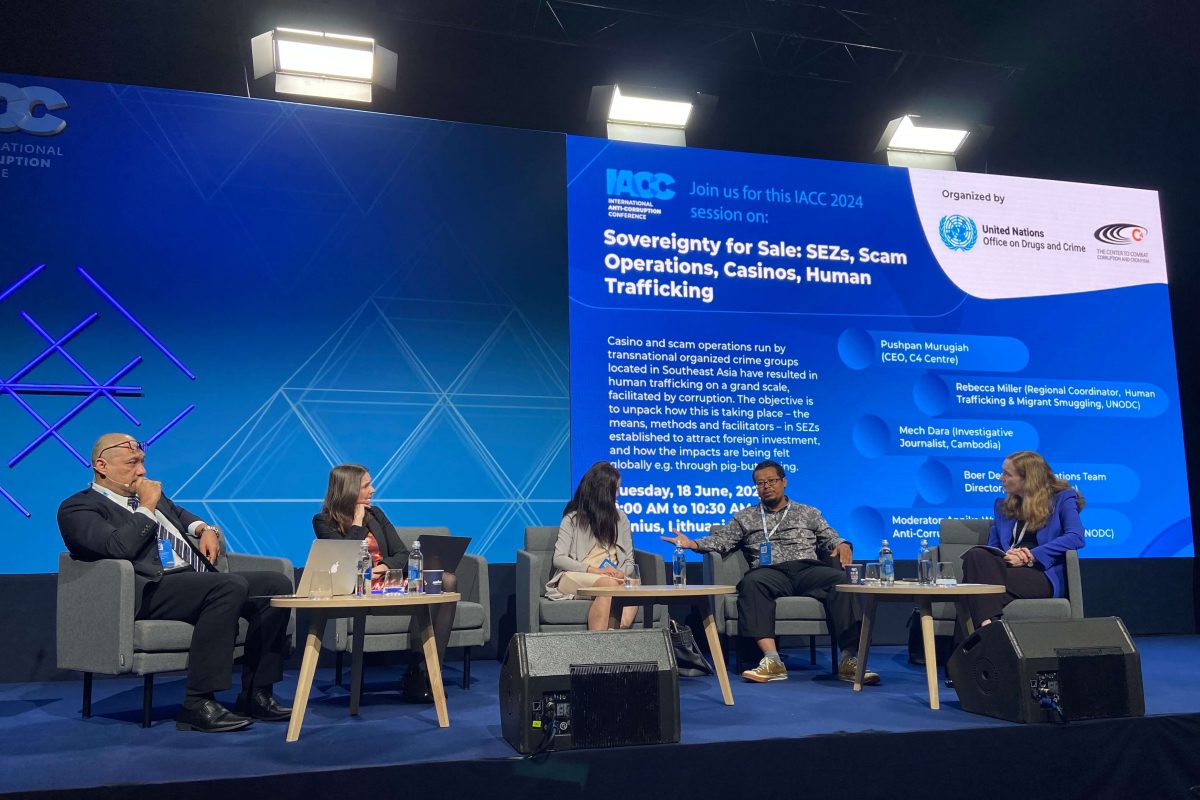Cambodia, Laos, Myanmar and the Philippines host gigantic scam centres, often located inside casinos, in which hundreds of thousands of people rake in billions of dollars by scamming people around the world.
Their neighbour, Malaysia, has stayed clear of this crisis so far, but new economic developments along the country’s border with Singapore have sparked worries that this might change.
On June 12, Singapore Prime Minister Lawrence Wong visited Malaysia and highlighted how the new Johor-Singapore Special Economic Zone (SEZ) could unlock massive economic benefits for both nations.
However, details of the specific economic sectors set to operate there have yet to be revealed. And one troubling legal action has cast suspicion as to how the SEZ could be used for shady practices.
In April, Bloomberg reported that Malaysian authorities were allegedly in talks with business tycoons to open a casino in Forest City, another vast business development close to Singapore. The report stated that the current Malaysian monarch, Sultan Ibrahim Iskandar of Johor, was a main backer of this casino plan.
Retaliation was swift. Bloomberg reporters were swiftly put under investigation for sedition, criminal defamation, and misusing internet access to cause online harm.
A full agreement on the SEZ is expected to be signed in September 2024. SEZs in nearby countries, such as Cambodia, Myanmar, and Laos, are often hubs for these crimes.
Despite no cases of corruption having been found related to the new SEZ, more clarity is needed as to what purpose the SEZ will serve and how it will benefit Malaysia, according to Pushpan Murugiah, CEO of Malaysia’s Centre to Combat Corruption and Cronyism.
Dr. Muhammad Mohan, president of the Malaysian Society for Transparency and Integrity, stated that there is a risk of online scams happening from the Johor-Singapore SEZ, even if strict controls are put in place.
“Civil society needs to speak up and continue to demand transparency,” Muhammad said.
Concerns about financial crimes and human trafficking scandals spreading across Southeast Asia to Malaysia are well founded.
Organised crime gangs, especially local branches of Chinese Triads, are already deeply involved in Malaysia, according to a 2024 report by the United States Institute of Peace (USIP). It found that they participate in setting up scam centres and bring funds to Malaysia to be laundered through a vast network of shell companies, pyramid schemes and cryptocurrency networks.
Malaysian officials have so far focused on citizens being trafficked to work in Southeast Asian scam centres or falling victim to these frauds. In 2023, the country lost over US$750 million to financial scams, according to the USIP report.
Ramli Mohammed Yoosuf, a high-ranking police commander for commercial crimes, said that these scams, including fraudulent investment schemes, romance scams, or other types of fraud, have become increasingly commonplace.
But any pressure to investigate runaway trade and development between Malaysia and Singapore may struggle to gain traction. Both Malaysia and Singapore have forged close ties, with bilateral trade worth around US$79.60 billion in 2023. The countries are each other’s second-largest trading partners.
Despite these powerful interests, more openness is needed.
These crimes have steered the Association of Southeast Asian Nations into a diplomatic crisis, according to Rebecca Miller, the regional programme coordinator for Human Trafficking and Smuggling of Migrants at the United Nations Office on Drugs and Crime .
“We need to work regionally, countries need to communicate with each other. They need to share experiences, and they need to put pressure on each other,” Miller said at the International Anti-Corruption Conference 2024 in Vilnius, Lithuania, on June 18.


